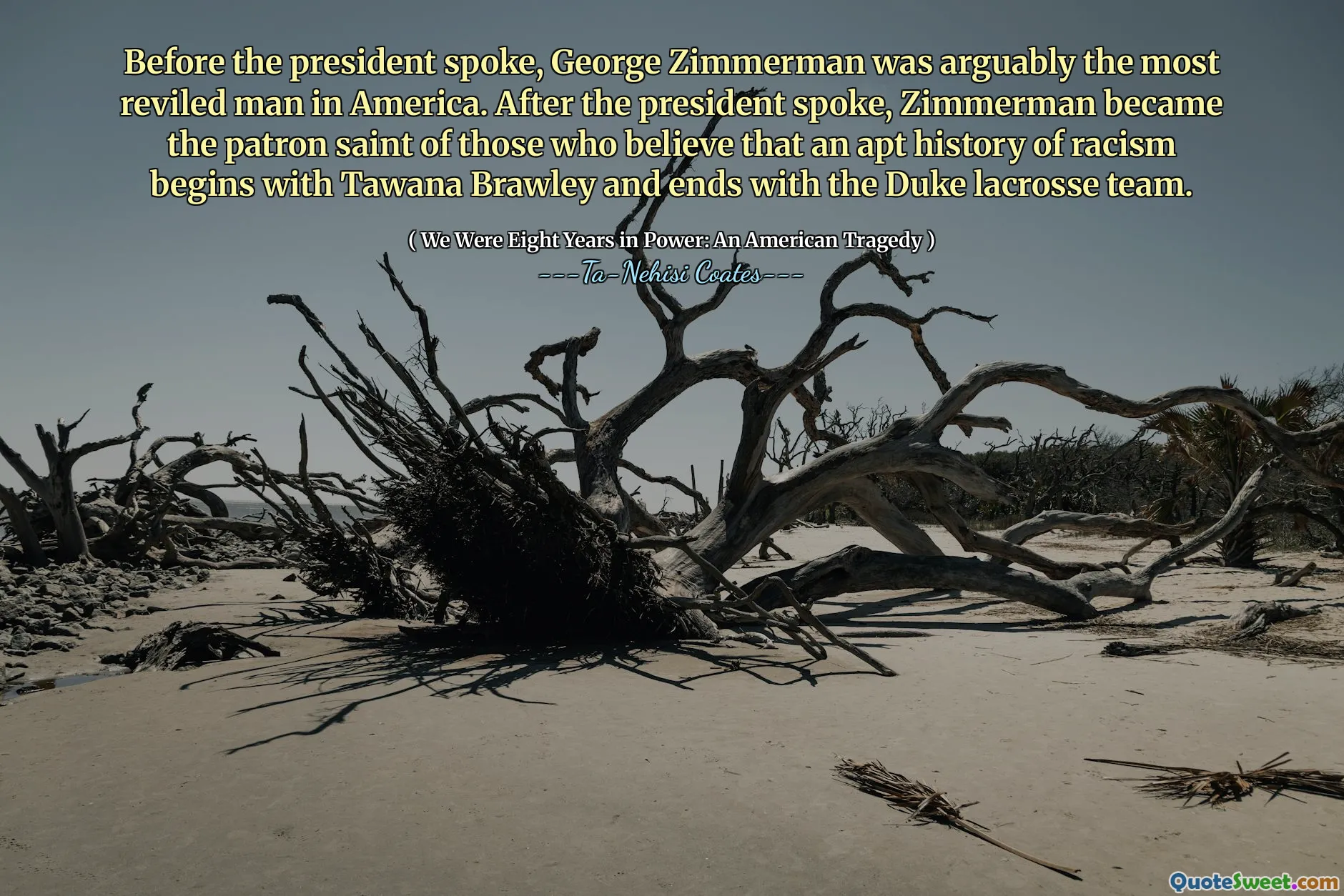
Before the president spoke, George Zimmerman was arguably the most reviled man in America. After the president spoke, Zimmerman became the patron saint of those who believe that an apt history of racism begins with Tawana Brawley and ends with the Duke lacrosse team.
This quote vividly illustrates how public perception of individuals involved in high-profile racial incidents can shift dramatically based on political and social narratives. It suggests that political speech, particularly from figures like the president, can influence the moral framing of contentious issues, transforming perceived villains into symbols of larger ideological battles. The mention of Zimmerman, a man vilified after the Trayvon Martin case, underscores how societal divisions and media narratives can paint a polarized picture of justice and racial history. The reference to Tawana Brawley and the Duke lacrosse team further illustrates how certain racial controversies are selectively used to frame discussions about racism, often dismissing complex histories and systemic patterns. Such rhetorical devices serve to highlight the disparity and inconsistency in public discourse, where racial justice is sometimes reduced to a matter of political allegiance rather than an earnest pursuit of equity.







